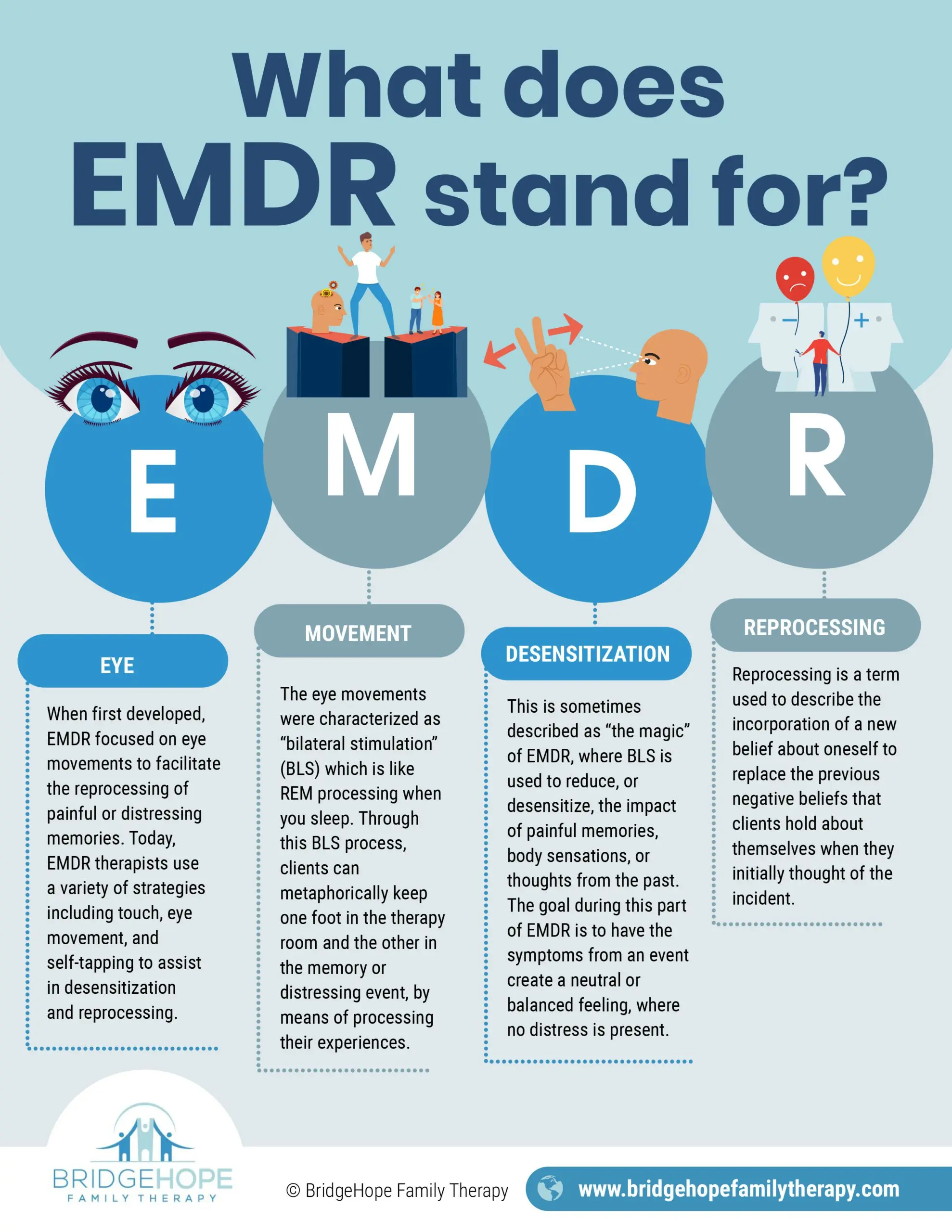EMDR Therapy
We all carry memories — but some remain frozen in time, stuck in the past. When you've gone through something overwhelming, your mind may not have had the chance to properly process the experience. Instead of fading like most memories, traumatic ones can feel as if they’re still happening now.
They may shape how you see yourself and the world — even when those beliefs no longer reflect reality. EMDR therapy can help update these stuck patterns.

What is EMDR ?
EMDR (Eye Movement Desensitisation and Reprocessing) is a powerful, evidence-based therapy for trauma, PTSD, and childhood trauma. It activates your brain’s natural healing system and helps reprocess disturbing memories in a safe and structured way.
Unlike traditional talking therapies, EMDR uses a technique called bilateral stimulation — usually eye movements, tapping, or tones — to help your brain digest and release traumatic material.
We’re not just revisiting the past. Through EMDR, your brain updates outdated beliefs and emotions, making space for healing. I often describe it as having one foot in the past and one in the present — helping your emotional and rational brain work together to restore balance.
Research shows EMDR therapy is highly effective in reducing symptoms of PTSD, anxiety, and the lingering effects of early life trauma.
Why Preparation Matters in EMDR
A vital part of EMDR is the preparation phase. We don’t jump straight into trauma processing. First, we make sure there is enough emotional stability and adaptive information in your system — such as internal resources, grounding skills, and a sense of safety.
Without this foundation, trauma work can become overwhelming rather than healing.
As EMDR consultant and trainer Thomas Zimmerman explains:
“You cannot land a memory the size of a whale into adaptive information the size of a canoe.”
(EMDR with Complex Trauma, 2024, p.12)
That’s why we go at your pace and tailor the process to what you need in each session.
The AIP Model (Adaptive Information Processing)
EMDR is based on the Adaptive Information Processing (AIP) model, which views psychological symptoms as a sign of unprocessed memories. When trauma happens, the brain’s natural ability to heal can get blocked.
EMDR helps reconnect those stuck memories with more adaptive, healthy information stored elsewhere in your system. This leads to lasting relief from distress, changes in core beliefs, and reduced emotional reactivity.
EMDR for PTSD, Trauma, and More
EMDR therapy is widely used and recommended for:
- PTSD (Post-Traumatic Stress Disorder)
- Childhood trauma and attachment wounds
- Anxiety and panic
- Phobias
- Distressing memories or flashbacks
- Low self-worth linked to past experiences
You don’t need to go into detail about your trauma if you don’t want to. EMDR is not hypnosis, and you stay in control throughout. Many clients find it empowering, focused, and surprisingly gentle.
Common Concerns
You stay in control throughout EMDR. It’s not hypnosis, and you don’t need to talk in detail about your trauma if you don’t want to. I’ll guide you gently and collaboratively through the process. EMDR can be intense, but we go at your pace — and you’re never alone in it.
Is EMDR Right for You?
If you're living with the effects of trauma, PTSD, or difficult early experiences, EMDR may be a helpful path toward healing. Feel free to get in touch — I'm happy to talk with you about whether this approach feels right for where you are now.
I trained in EMDR with Dr. Michael Paterson at EMDR Masterclass, an EMDR Europe-accredited training provider. I am a member of the EMDR UK Association and am currently working toward becoming an EMDR Europe-accredited practitioner. I receive regular supervision from an EMDR-accredited consultant.
My aim is always to offer a calm, supportive space where we work together at your pace.
Get in touch
Reaching out can be hard – I get that. If you feel ready, I invite you to book a free 15-minute phone consultation. We can talk about what’s going on and whether I’m the right fit for you.
Therapy isn’t about quick fixes. It’s a gradual journey inward – one that can lead to deep understanding, healing, and greater freedom.
Warmly,
Philipp
All enquires are usually answered within 24 hours, and all contact is strictly confidential and uses secure phone and email services.
© Therapy with Philipp
powered by WebHealer
Manchester Therapies Ltd. Registered in England. Company No: 13398491. Registered office. Chartwell Accountants, 47 Bury New Road, Prestwich, Manchester, England, M25 9JY

